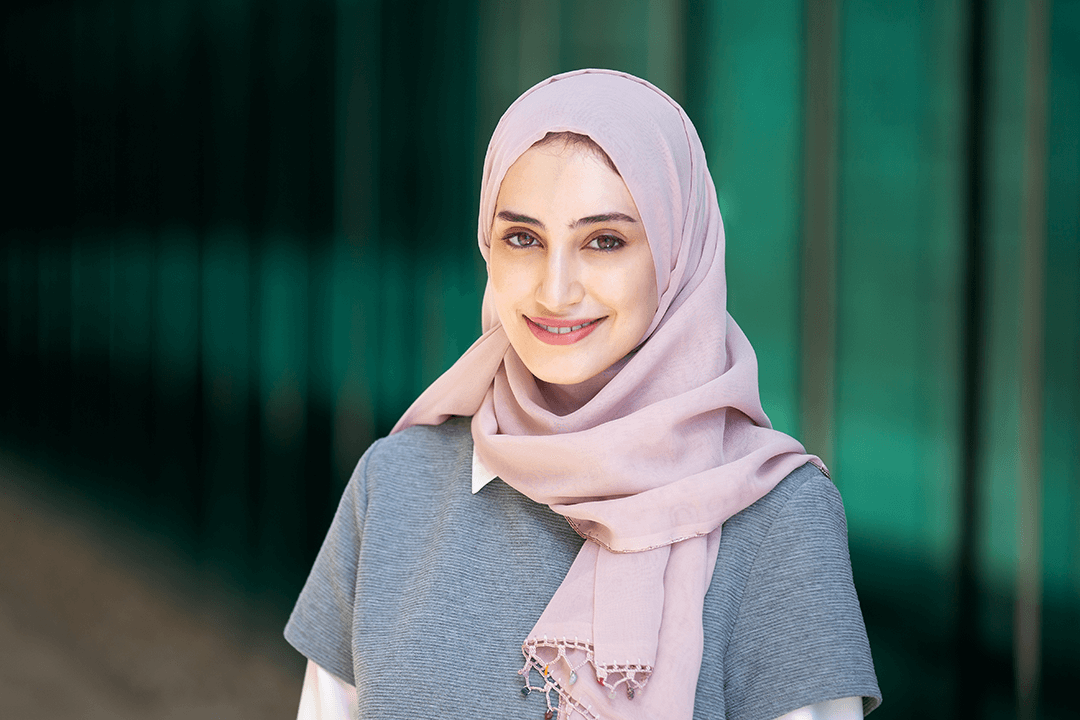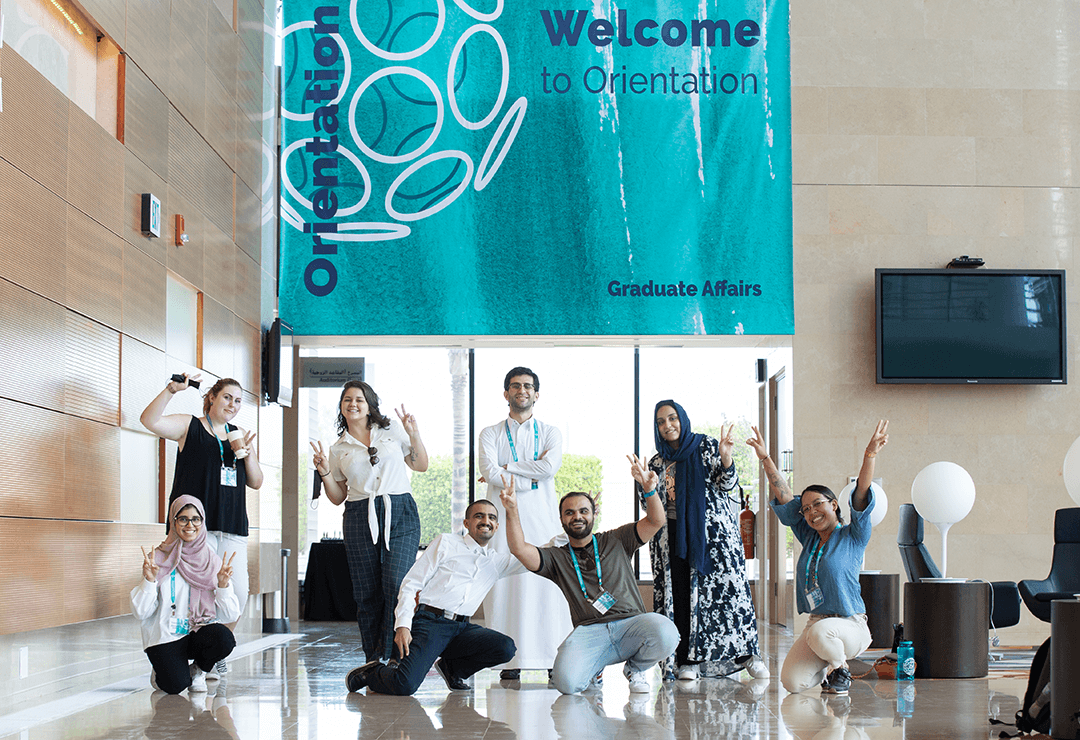Alharbi welcomes students, shares educational journey at Convocation 2021

Siba Alharbi, student speaker, KAUST Convocation 2021. Photo credit: KAUST / Khulud
On Tuesday, August 31, 2021, the KAUST community gathered for the 12th annual academic convocation ceremony. This year's event offered both online streaming and in-person presentations in two campus locations for the incoming students, speakers, KAUST community members and university guests.
KAUST President Tony Chan set an inspiring tone for the new school year by outlining the ways in which the University is supporting the Kingdom and making tangible impacts around the world through its research initiatives and partnerships. He attributed these achievements to the contributions of KAUST's students, and encouraged the new class to their best potential.
"The secret to our success is that each generation of students, faculty and staff has endeavored to take our University to even higher levels of accomplishment," Chan said. "I have no doubt that you – our thirteenth generation – will do your part, and you can do so by building on what we have accomplished today. There is every opportunity for you to work and study hard and engage fully with our world-class faculty and staff and to avail of our exceptional facilities and laboratories."
Provost Lawrence Carin and Dean of Graduate Affairs Brian Moran were among the other University leaders with welcoming words of encouragement and guidance. The audience also heard from faculty speaker Francesca Benzoni, associate professor of marine science; KAUST alumni Ryan Lefers, co-founder of Red Sea Farms; and student speaker Siba Alharbi.
Musical performances by student talent opened and closed the event, with featured instruments including harp, flute, oud, guitar, darbouka and voice.
Student perspective
Bioscience doctoral student Siba Alharbi greeted students with a speech about her educational journey and the lessons that might be learned from it. Alharbi's journey is one that many hard-working students can relate to their own experiences.
"After I finished high school, I got really good grades and was accepted to this amazing medical school in Riyadh," she said. "Everyone told me it's a chance you can't miss. My father is a surgeon, and being in the medical profession runs in the family, but when I started studying, I realized this wasn't my passion."
Alharbi found that content memorization didn't challenge her enough. "It never felt natural. I wanted to do more research, and ask questions like, 'Why does this work this way?'" When she changed programs to the life sciences, she said, "It broke my family's heart a bit."
Portrait of some of the new incoming students at KAUST, Orientation 2021. Photo credit: KAUST / Khulud
"When I visited KAUST, I honestly fell in love. The first place I went to was the library, and afterwards I realized, 'Yes, I have to come here. I have to.'"
Passionate about the women in STEM movement in particular, Alharbi met a Saudi female Ph.D. student with a background similar to hers, who was doing Grade A science and competing with world-class scientists in her field.
"She was a true inspiration. I thought, 'If she can do this, I can, too.' She was in the chemistry department. I really wanted to work with her and learn how to do research with her, which is the main focus at KAUST. Two years later, I was able to work with this person."
Alharbi came to KAUST on an internship working on nano particles and their bio-applications with Professor Niveen Khashab.
"The internship I did here was for my senior year project. I then applied to KAUST and did the interview. I got accepted before I finished the internship."
Now a doctoral student, Alharbi works with Professor Stefan Arold in the Structural Biology and Engineering Laboratory.
"We work specifically to study the structure and function of proteins and how they operate within the cell using an integration of structural, biophysical, biochemical and computational approaches to eventually engineer molecules with desired properties," she said.
"What I like most about being at KAUST is that it is research-based, and the courses are more discussions than lectures," she said. "Something I admire most about my professor is that he would sit next to me, and together we would tackle a certain challenge within the science topic that we were investigating. The process was never about working alone and then showing the result. It was always collaborative, which helped me grow as a young scientist."
Asked what is unique about KAUST, Alharbi was clear: "I love the diversity within this community," she said. "When I came here, I became roommates with a Colombian, and I loved how our differences brought us together. It's a great environment to embrace and understand other cultures. We have the gift of being exposed to different perspectives and new ideas, which makes for a nice recipe for innovation that makes an actual impact on the world."
Related
- Ninth academic Convocation marks new beginnings and calls for visionary future
- 'A mission for learning' at eighth Academic Convocation
-
KAUST researchers attend 70th Lindau Nobel Meeting

